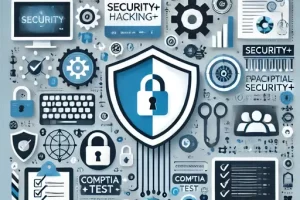
Certified Information Systems Security Professional (CISSP)
Certified Information Systems Security Professional (CISSP): Elevate Your Cybersecurity Expertise
In today’s rapidly evolving digital world, safeguarding an organization’s data, infrastructure, and sensitive information has become a critical priority. Cybersecurity threats are growing in complexity, and having an advanced understanding of security protocols is essential for professionals in the field. One of the most prestigious and globally recognized certifications for information security experts is the Certified Information Systems Security Professional (CISSP). This credential not only validates your mastery of advanced security practices but also opens doors to a wide range of career opportunities in the cybersecurity industry.
This blog will explore the importance of obtaining the CISSP certification, how it compares to other prominent certifications, and proven strategies to help you prepare effectively for the CISSP exam.
What is Certified Information Systems Security Professional (CISSP)?
The Certified Information Systems Security Professional (CISSP), awarded by the International Information System Security Certification Consortium (ISC)², is a globally recognized certification for seasoned security professionals. It serves as a validation of an individual’s knowledge and expertise in designing, implementing, and managing top-tier cybersecurity programs.
CISSP certification covers a wide array of topics, ensuring that professionals are well-versed in the latest trends and technologies in cybersecurity. The certification is tailored for those who have significant experience in the industry, and it serves as a benchmark of excellence for cybersecurity management and leadership roles.
Why Pursue the CISSP Certification?
- Global Industry Recognition: CISSP is widely recognized as a gold-standard certification in the cybersecurity industry. It signifies your proficiency across a range of security domains, including security management, risk management, asset security, and software development security. Earning the CISSP certification positions you as an authority in the field and a trusted professional capable of designing and managing sophisticated security programs.
- Comprehensive Knowledge: The CISSP certification offers deep insight into crucial security areas such as security architecture, network security, cryptography, and identity management. By covering all eight domains of the (ISC)² Common Body of Knowledge (CBK), it ensures a holistic understanding of information security.
- Career Advancement: Earning the CISSP certification can significantly boost your career trajectory. It prepares you for leadership roles such as Chief Information Security Officer (CISO), Security Consultant, and IT Director, elevating your professional standing in the cybersecurity world. The credential enhances your credibility, which can lead to higher salaries, promotions, and better job opportunities.
Comparing CISSP with Other Cybersecurity Certifications
With so many cybersecurity certifications available, it’s essential to understand how the CISSP stacks up against other industry credentials.
CISSP vs. Certified Information Security Manager (CISM)
- Scope: While CISM focuses on information security management and governance, CISSP provides a broader perspective, covering a wide range of security domains, from asset security to security engineering and operations. CISSP is more technical and hands-on, while CISM is more aligned with managerial roles.
- Target Audience: CISM is ideal for professionals aiming to manage and oversee information security programs. On the other hand, CISSP is better suited for those seeking a more technical and comprehensive understanding of security principles and practices across multiple domains.
CISSP vs. Certified Ethical Hacker (CEH)
- Focus: CEH emphasizes offensive security techniques like ethical hacking and penetration testing, primarily focusing on identifying vulnerabilities and weaknesses in systems. CISSP, however, encompasses a wider array of topics, including defensive security, risk management, and overall security architecture.
- Application: CEH is perfect for those specializing in ethical hacking, while CISSP is geared toward individuals who wish to demonstrate a broad and deep understanding of both defensive and offensive security measures.
CISSP vs. CompTIA Security+
- Scope: CompTIA Security+ is an entry-level certification covering the basics of cybersecurity concepts and practices. It’s ideal for beginners, whereas CISSP is an advanced certification that provides a deep dive into multiple domains and offers a more comprehensive understanding of cybersecurity.
- Career Path: CompTIA Security+ is often the first step for those entering the cybersecurity field. CISSP, however, is best suited for experienced professionals looking to validate their expertise and advance into high-level security roles.
Effective CISSP Exam Preparation Strategies
The CISSP exam is known for its challenging nature, but with the right approach, you can pass it successfully. Here are some tried-and-true strategies to help you prepare:
- Understand the Exam Structure: The CISSP exam covers eight major domains within the (ISC)² Common Body of Knowledge (CBK): Security and Risk Management, Asset Security, Security Architecture and Engineering, Communication and Network Security, Identity and Access Management, Security Assessment and Testing, Security Operations, and Software Development Security. Ensure you are familiar with each of these areas and how they interrelate.
- Use Official Study Materials: Leverage official (ISC)² resources such as the CISSP Study Guide, practice exams, and online courses. These materials are specifically designed to align with the exam content and will give you a comprehensive understanding of the topics tested.
- Gain Practical Experience: Hands-on experience is crucial for CISSP exam success. Apply the knowledge you gain from studying by working on real-world security challenges, conducting vulnerability assessments, and managing security operations. Experience in each domain will strengthen your understanding and application of security principles.
- Take Practice Exams: Testing yourself with practice exams is a great way to assess your knowledge and identify areas that need improvement. Regularly taking practice tests will familiarize you with the question format and time constraints, building your confidence for the actual exam.
Conclusion: Why CISSP is a Career-Changing Certification
The Certified Information Systems Security Professional (CISSP) certification is a powerful credential that validates your expertise in creating and managing comprehensive security programs. Whether you’re aiming for senior security roles or looking to expand your cybersecurity knowledge, CISSP will elevate your career and open doors to high-level positions in the industry.
For more details on how to get started with CISSP certification, visit the official (ISC)² website or explore accredited training providers who can guide you on your journey to becoming a certified security expert.


